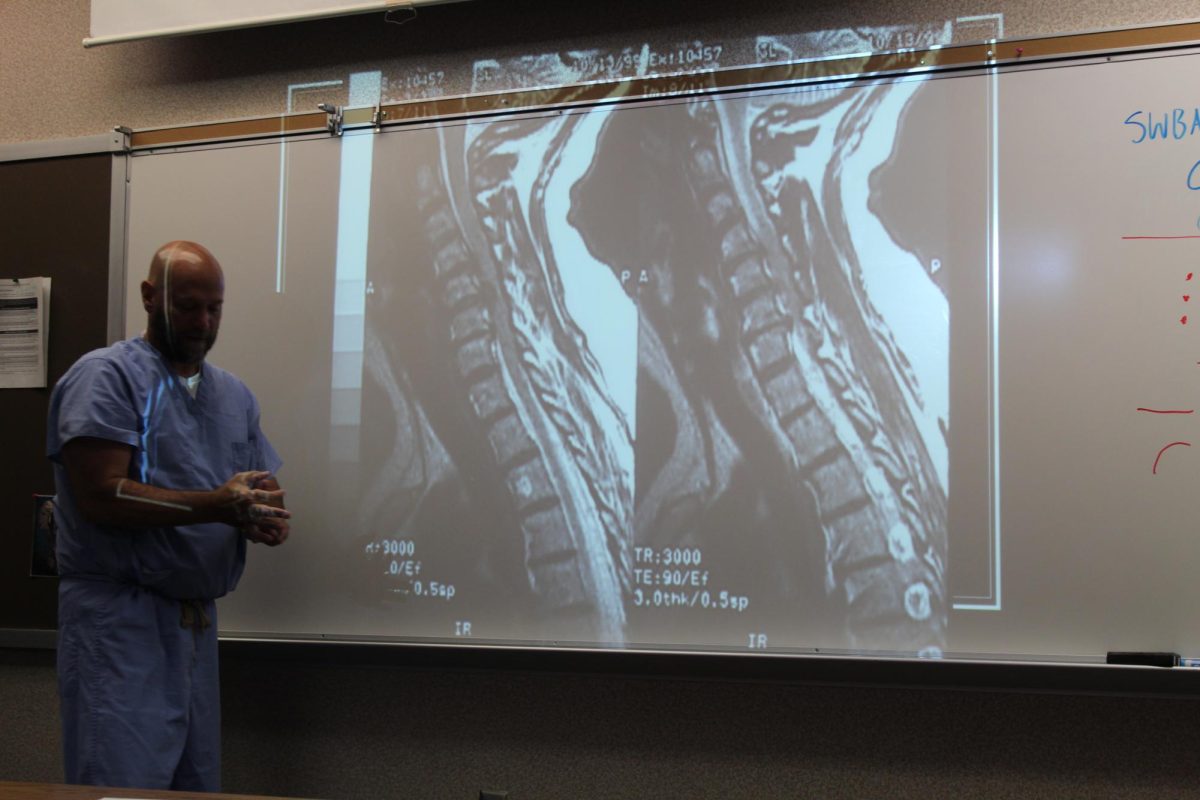Dr. Stanfield, a Neurosurgeon at Schenck, presented the brain to Mrs. Welden’s fifth period Psychology class. He mentioned that psychology is the least understood field of medical science: no one really understands how the brain fully works–it’s a supercomputer. He opens by talking about conditioning with the example of Pavlog’s dogs; ringing a bell and showing the dogs meat, causing their mouth to water, enough times will cause their mouths to water every time a bell is rung. The brain can be conditioned to work a certain way if an action is repeated enough. Another example would be sleeping at the same time with the same sounds, the same way every night, which allows one to fall into a deep sleep almost instantly.
Then, he talked about how the brain tricks itself into believing it’s injured, even when the body is perfectly fine, usually due to an overwhelming amount of stress. He mentioned a woman who had a nail removed from her foot. In normal circumstances, she would feel better, but she still ached. Given more information, she revealed she had an overwhelming amount of stress at home, and given anxiety medicine, she felt fine. Interestingly, he mentioned that with certain illnesses, even removing a part of the brain could help. By removing a certain part of the brain, the other parts of it are able to work harder.
Additionally, some people suffer from conditions that cause their pain pathway to be altered, such as fibromyalgia. He described fibromyalgia with an example: if someone hits them self with a hammer in the finger,, they would feel a sudden, but smaller pain because by the time the signal gets to their brain, it’s died out enough to be weak. However, because their finger was still smashed, the next time their finger is touched, they’d receive the shock of pain.
He then dove into brain surgeries. Shockingly, when people have craniotomy, most of the time they are kept awake and talking throughout the whole surgery. Surgeons do this to ensure the patient’s other brain parts function while they are performing the surgery so as not to harm other parts of the brain. Though they can get to many parts of the brain from gaps, there’s one part they rarely operate on: the brain stem. Getting injured in the brain stem is an almost guaranteed death: you can survive with huge brain injuries in almost any other part, but a small scrape from the brain stem renders you almost brain-dead.
Finally, he went into his life, discussing what he went through to get to where he is now. He went to a bad high school with weak teachers, and as a result, he ended up dropping out. He didn’t want to give up, however, he wanted more of a challenge. As a result, he spent two years working up to Indiana University, transferring between Bloomington, Columbus, and more. He spent his 8 years there, followed by 6 years of medical school, working 120 hour weeks with 3 hours of sleep a night among interns, mainly doing paperwork. Throughout his entire career, he mentioned that “the hardest part was staying awake,” mentioning his grades because he believes that it’s never too late to work hard.










